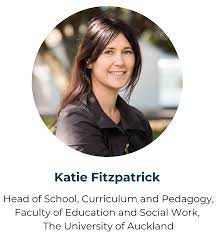RSE Guide misrepresented in media
Along with other gender critical groups, Resist Gender Education welcomed the commitment in the new government’s Coalition Agreement to remove and replace the Relationships and Sexuality Guide, which is replete with gender ideology terms and scientific falsehoods.
In our press release (not picked up by any media) we said, “The current affirmation of gender ideology in schools is teaching children that sexist stereotypes are what determine their sex. As a consequence, would-be lesbian and gay children are learning that if they don’t conform to feminine or masculine stereotypes, their bodies ought to be medically altered.”
“RGE would welcome the opportunity to contribute to new guidelines that are scientifically accurate and age-appropriate and teach children that there is no one right way to be a boy or a girl. We also look forward to the removal of unisex toilets and changing rooms in all schools and their replacement with single-sex spaces, for the benefit of both sexes.”
Proponents of teaching gender ideology to children have immediately expressed “alarm” at the prospect the RSE Guide will be withdrawn and, in various media interviews, have misrepresented its contents and incorrectly suggested that sex education is to be removed altogether from the curriculum.
In this Breakfast interview on 28 November (from 9 minutes), the lead writer of the RSE Guide, Katie Fitzpatrick, describes it as simply being about consent, sexuality, and relationships and fails to mention the content that teaches children sex is on a spectrum and that boys can get periods too.
Fitzpatrick says, “The purpose of education is to broaden knowledge, is to ask questions, is to understand topics from a wide variety of perspectives and draw on different disciplines to try and understand.” If this were true of the RSE Guide, few parents would object to its content, but the opposite is the case - the Guide promotes as fact the perspective of transgender activists and deliberatley disregards any other points of view about gender.
In this piece from TV1 News on the same day (from 5 minutes), the gender ideology content of the RSE Guide is again glossed over and opposition to it is characterised by a Family Planning spokesperson as coming from a small group of parents who have been influenced by US rhetoric.
The reporter correctly states that the Ministry of Education largely leaves schools to navigate the debate alone, and Principal, Darryl Gibbs, confirms that there “are still grey areas around consultation and if you get a small portion who push back compared to the vast majority there’s no, I guess, guidance or magic percentage around when you should or shouldn’t stop teaching it.”
This observation strongly reinforces the need for parents to collaborate and ensure the whole community is included in meaningful RSE consultation.
Radio New Zealand also carried an interview with Katie Fitzpatrick, in which she repeated the claim that removing the RSE Guide would be “going back to some sort of regressive form of schooling which looks to repress knowledge about health and sexuality for young people.”
Pleasingly, the RNZ report did quote an opposing opinion from Emeritus Professor Sue Middleton, who expressed the same view as RGE - that relationships and sexuality education should continue but that the teaching guidelines must be stripped of the current gender ideology terminology and returned to scientifically factual and age-appropriate content.
To read our full critique of the current RSE Guide click here.
Let the government know you appreciate the promise to remove the RSE Guide! Here is a template letter to give you a start.
Send emails to firstname.lastname@parliament.govt.nz (eg winston.peters@parliament.govt.nz)
Preferred pronouns in schools is not about free speech
Some readers questioned the statement in our last substack that called for “A nationwide policy that requires everyone in schools to use standard English pronouns for a person’s correct sex and removes the whole concept of ‘misgendering’.”
Concerns were raised that requiring standard English pronouns is a form of compelled speech and therefore contravenes the Bill of Rights. While this may be true for adults, we do not believe it applies to children in schools.
Here are the reasons for RGE’s stance:
Humans cannot change sex. Asking children to use wrong-sex pronouns is teaching them that some humans can change sex.
Children do not have freedom of choice in schools. When a teacher role-models using wrong-sex pronouns, children will be coerced to follow suit, no matter their personal beliefs.
Using wrong-sex pronouns is extremely confusing and destabilising for new speakers of English and for children with intellectual disabilities or neurodiversity.
Using wrong-sex pronouns gives subtle permission for children to enter spaces and sports that were reserved for the opposite sex.
The concept of ‘misgendering’ provides a whole set of new bullying opportunities, and even censure in some schools, against those children who make mistakes in ‘preferred pronoun’ use.
Children who have been routinely addressed with wrong-sex pronouns will find it harder to reclaim their correct sex, should they later resile from a transgender identity.
Using wrong-sex pronouns in schools embeds an ideological view not shared by the majority. ‘Preferred pronouns’ and ‘misgendering’ should be excluded from schools, in the same way as other religious and ideological terminology is excluded.
RGE recognises that a policy to use standard English pronouns will go against the wishes of some parents who want their children to be addressed by wrong-sex pronouns, but it is a commonsense policy that does not privilege anybody and maintains schools as places free of ideology that teach scientific fact.
For further explanation of the unhealthy consequences of using wrong-sex pronouns, read this article from Partners for Ethical Care.
And for a discussion about ‘preferred pronouns’ by Maya Forstater, Helen Joyce, Stella O’Malley, Malcolm Clark and Alasdair Gunn, at the recent Genspect Denver conference, watch this YouTube clip. In this video, Stephanie Davies-Arai from Transgender Trend says:
“‘Preferred pronouns’ are “part of the queering of the primary classroom project and its aim is to disrupt reality for children so I think it is really very important that we challenge it in schools. It also disrupts language development… Pronouns are really important for that, to understand a child’s comprehension… And the other issue is, it can be really genuinely distressing for autism spectrum kids.”
UK guidance on trans pupils about to be published
Long-awaited guidance from the UK Department of Education will put strict limits on gender identity changes in schools. “Headteachers will be told to abide by existing laws including the Equality Act and must keep boys’ and girls’ toilets, changing rooms and sports separate,” reports the Daily Mail.
“Ministers ruled out a blanket ban on social transitioning after concluding it would require time-consuming primary legislation and could in any case be unworkable. Education Secretary Gillian Keegan is understood to have agreed the new draft, paving the way for it to be published within weeks.”
However, some politicians want the guidance to go further. Conservative MP, Nick Fletcher, said, “Affirming a child as the sex or gender they are not participates in a harmful delusion. It abnegates our adult safeguarding responsibility.”
Maya Forstater, from Sex Matters, commented, “We are relieved that the long-awaited guidance is coming out, and that it will rule out most aspects of social transition clearly.”
But she added: “The idea that there is a “presumption against” social transitioning passes the buck back to schools to negotiate and to face the risk of legal challenges. It is irresponsible and unworkable to suggest that there are some unspecified situations where a school may be obliged to pretend that a boy is a girl, or vice versa.”
She called for the Government to issue ‘common sense guidance’ stating that children are either born male or female and cannot change sex.
‘Schools cannot meaningfully accommodate “social transition” which means pretending that a boy is a girl or a girl is a boy, including by calling them “he” or “she” or applying different rules than to other girls or boys. It is not safe or fair on any of the children,’ she said.
Why girls become boys
In this 5 minute video, Abigail Shrier explains the phenomenon of Rapid Onset Gender Dysphoria (ROGD) and its tragic effects on a generation of (mostly) girls. She says, “Schools can and should insist that every child be treated respectfully without sowing gender confusion in an entire population.”
Abigail Shrier is the author of “Irreversible Damage: the transgender craze seducing our daughters.”






